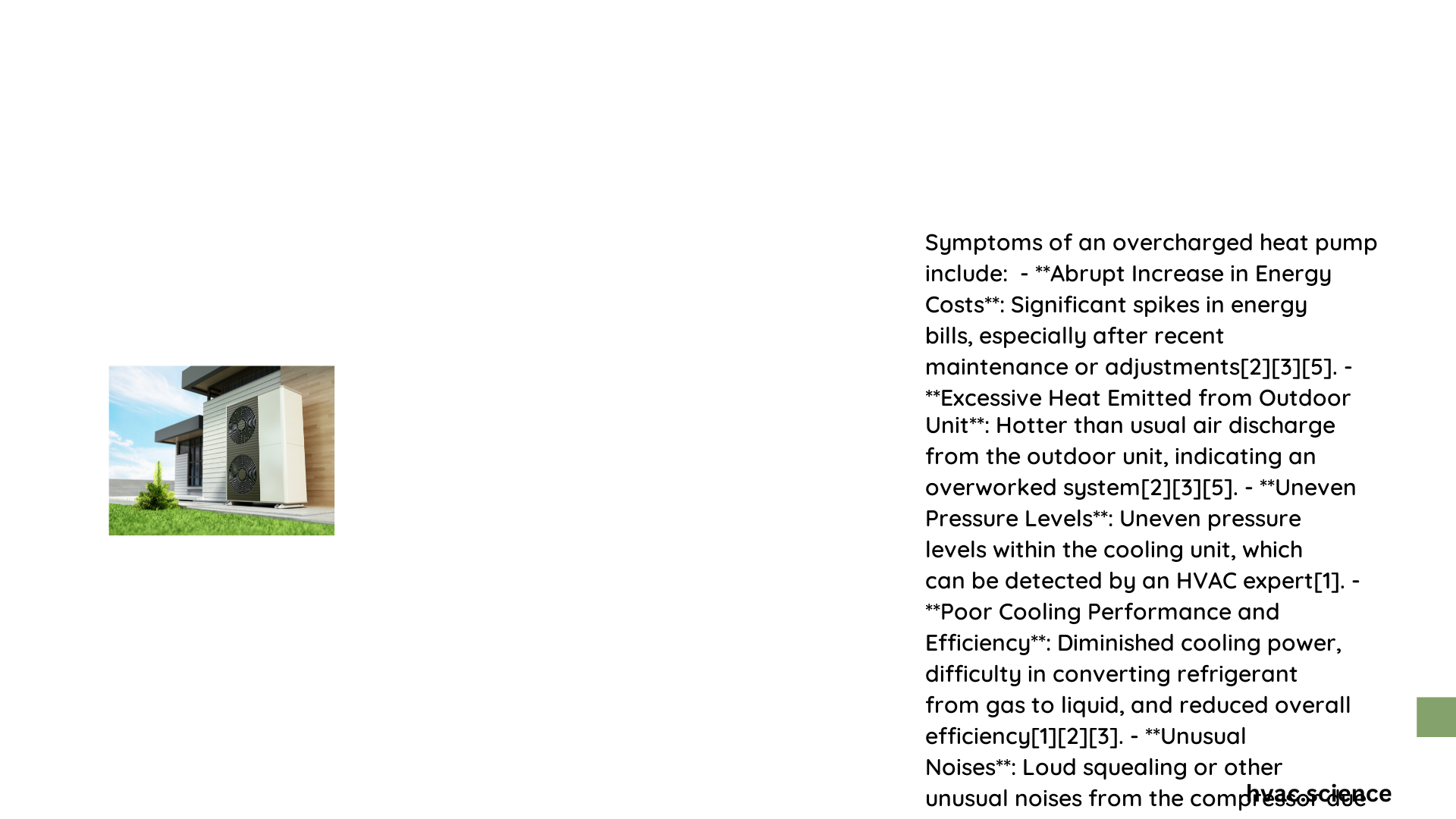An overcharged heat pump presents a complex array of performance issues that can compromise system efficiency, increase energy consumption, and potentially lead to catastrophic component failure. Homeowners and HVAC professionals must recognize the subtle and dramatic indicators of refrigerant overcharge, which range from abnormal pressure readings to distinctive operational anomalies that signal underlying system stress.
What Are the Primary Warning Signs of Heat Pump Refrigerant Overcharge?
How Does Reduced Cooling Performance Manifest?
When a heat pump becomes overcharged, several critical performance metrics deteriorate:
| Performance Indicator | Normal Range | Overcharged System Characteristics |
|---|---|---|
| Discharge Temperature | 180-210°F | 225-250°F (Excessive Heat) |
| Condenser Subcooling | Moderate | Significantly Elevated |
| Condensing Pressures | Stable | Abnormally High |
Key Performance Degradation Symptoms
- Decreased Cooling Efficiency: The system struggles to maintain desired temperature
- Increased Energy Consumption: Higher electricity bills due to system strain
- Reduced Heat Transfer Capacity: Compromised refrigerant circulation
What Unusual Sounds Indicate Refrigerant Overcharge?
Heat pumps communicate system stress through distinctive audio signals:
- Loud Compressor Noises
- Persistent grinding or rattling sounds
-
Indicates mechanical stress and potential imminent failure
-
Hissing or Gurgling
- Suggests liquid refrigerant in inappropriate system locations
- Potential crankcase or compressor damage risk
Can Frost Buildup Reveal Overcharge?
Unexpected frost formation provides critical diagnostic insights:
- Coil Temperature Anomalies: Below standard dew point ranges
- Airflow Restriction: Reduced cooling efficiency
- Potential Causes:
- Excessive refrigerant volume
- Compromised heat exchange mechanisms
How Do Pressure Dynamics Change?
Pressure measurements reveal systemic refrigerant imbalances:
- High-Side Pressure: Significantly elevated
- Low-Side Pressure: Normal to slightly increased
- Compression Ratio: Dramatically altered
What Are the Long-Term Risks?
Prolonged overcharging can lead to:
- Compressor motor burnout
- Permanent system damage
- Complete heat pump failure
- Substantial repair or replacement costs
How Can Homeowners Detect Overcharge?
Professional Diagnostic Recommendations:
– Annual professional HVAC inspection
– Regular refrigerant level checks
– Monitor system performance metrics
– Watch for sudden efficiency drops
What Immediate Actions Should Be Taken?
- Discontinue system operation
- Contact certified HVAC technician
- Avoid DIY refrigerant adjustments
- Document observed symptoms
Conclusion

Recognizing symptoms of overcharged heat pump requires technical understanding and proactive monitoring. Early detection prevents costly repairs and ensures optimal system performance.
